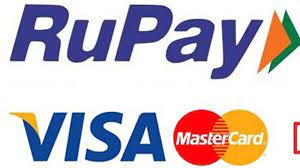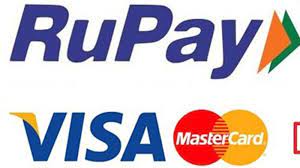
Visa Inc has complained to the U.S. government that India's "informal and formal" promotion of its domestic payment rival RuPay is hurting RuPay, the U.S. giant in a crucial market, memos viewed by Reuters demonstrate.
In public, Visa has played down concerns about the growth of RuPay which is promoted by public advocacy by Premier Narendra Modi. This includes comparing the usage of local cards to the national service.
However, U.S. government memos show Visa has raised concerns about the existence of a "level playing field" in India in an August. 9 meeting with U.S. Trade Representative (USTR) Katherine Tai and company executives including the CEO Alfred Kelly.
Mastercard Inc has raised similar concerns in private to the USTR. Reuters announced in the year 2018 , that Mastercard filed a complaint with the USTR to the effect that Modi used nationalist rhetoric to promote local networks.
"Visa remains concerned about India's informal and formal policies that appear to favour the business of National Payments Corporation of India" (NPCI), the non-profit that runs RuPay, "over other domestic and foreign electronic payments companies," said a USTR memo prepared for Tai ahead of the meeting.
There were no comments on the issue from Visa, USTR, Modi's office, and Modi's NPCI.
Modi has been pushing RuPay, a local business RuPay for a long time, and has been an obstacle to Visa as well as Mastercard in the rapidly growing payments market. RuPay represented 63 percent of India's 952 millions of credit and debit cards in November 2020, according to most recent regulatory data available on RuPay, an increase from only 15% in the year 2017.
In public, Kelly stated in May that over the years there had been "a lot of concern" regarding the possibility that RuPay could prove "potentially problematic" for Visa however he emphasized that his company was the market leader in India.
"That's going to be something we're going to continually deal with and have dealt with for years. So there's nothing new there," he told an industry event.
Modi in a speech in 2018 speech, described RuPay's use as patriotic, noting that because "everyone cannot go to the border to protect the country, we can use RuPay card to serve the nation."
When Visa voiced its concerns at its participation in the USTR gathering on August. 9 it mentioned that Indian president's "speech where he basically called on India to use RuPay as a show of service to the country," according to an email U.S. officials exchanged on the readout of the meeting.
Finance Minister Nirmala Sitharaman declared in the past this year "RuPay is the only card" banks should be promoting. Also, the government pushed for the use of a RuPay-based credit card that can be used for payments to public transport.
Although RuPay is the most popular cards available in India however, the majority of transactions are processed via Visa and Mastercard since the majority of RuPay cards were issued by banks as part of Modi's financial inclusion scheme Industry sources claim.
Visa informed it's U.S. government it was concerned about India's "push to use transit cards linked to RuPay" as well as "the not so subtle pressure on banks to issue" RuPay cards, as the USTR email stated.
Mastercard and Visa both count India as a major growth market, but they have been shocked by a central bank directive that requires them to store data from payments "only in India" for "unfettered supervisory access".
Mastercard has been banned for life on the issue of card cards to India because the central bank declared that it was not in compliance with the rules of 2018. A USTR official has privately criticized that the Mastercard restriction "draconian", Reuters reported in September.
(Source:www.reuters.com)
In public, Visa has played down concerns about the growth of RuPay which is promoted by public advocacy by Premier Narendra Modi. This includes comparing the usage of local cards to the national service.
However, U.S. government memos show Visa has raised concerns about the existence of a "level playing field" in India in an August. 9 meeting with U.S. Trade Representative (USTR) Katherine Tai and company executives including the CEO Alfred Kelly.
Mastercard Inc has raised similar concerns in private to the USTR. Reuters announced in the year 2018 , that Mastercard filed a complaint with the USTR to the effect that Modi used nationalist rhetoric to promote local networks.
"Visa remains concerned about India's informal and formal policies that appear to favour the business of National Payments Corporation of India" (NPCI), the non-profit that runs RuPay, "over other domestic and foreign electronic payments companies," said a USTR memo prepared for Tai ahead of the meeting.
There were no comments on the issue from Visa, USTR, Modi's office, and Modi's NPCI.
Modi has been pushing RuPay, a local business RuPay for a long time, and has been an obstacle to Visa as well as Mastercard in the rapidly growing payments market. RuPay represented 63 percent of India's 952 millions of credit and debit cards in November 2020, according to most recent regulatory data available on RuPay, an increase from only 15% in the year 2017.
In public, Kelly stated in May that over the years there had been "a lot of concern" regarding the possibility that RuPay could prove "potentially problematic" for Visa however he emphasized that his company was the market leader in India.
"That's going to be something we're going to continually deal with and have dealt with for years. So there's nothing new there," he told an industry event.
Modi in a speech in 2018 speech, described RuPay's use as patriotic, noting that because "everyone cannot go to the border to protect the country, we can use RuPay card to serve the nation."
When Visa voiced its concerns at its participation in the USTR gathering on August. 9 it mentioned that Indian president's "speech where he basically called on India to use RuPay as a show of service to the country," according to an email U.S. officials exchanged on the readout of the meeting.
Finance Minister Nirmala Sitharaman declared in the past this year "RuPay is the only card" banks should be promoting. Also, the government pushed for the use of a RuPay-based credit card that can be used for payments to public transport.
Although RuPay is the most popular cards available in India however, the majority of transactions are processed via Visa and Mastercard since the majority of RuPay cards were issued by banks as part of Modi's financial inclusion scheme Industry sources claim.
Visa informed it's U.S. government it was concerned about India's "push to use transit cards linked to RuPay" as well as "the not so subtle pressure on banks to issue" RuPay cards, as the USTR email stated.
Mastercard and Visa both count India as a major growth market, but they have been shocked by a central bank directive that requires them to store data from payments "only in India" for "unfettered supervisory access".
Mastercard has been banned for life on the issue of card cards to India because the central bank declared that it was not in compliance with the rules of 2018. A USTR official has privately criticized that the Mastercard restriction "draconian", Reuters reported in September.
(Source:www.reuters.com)





